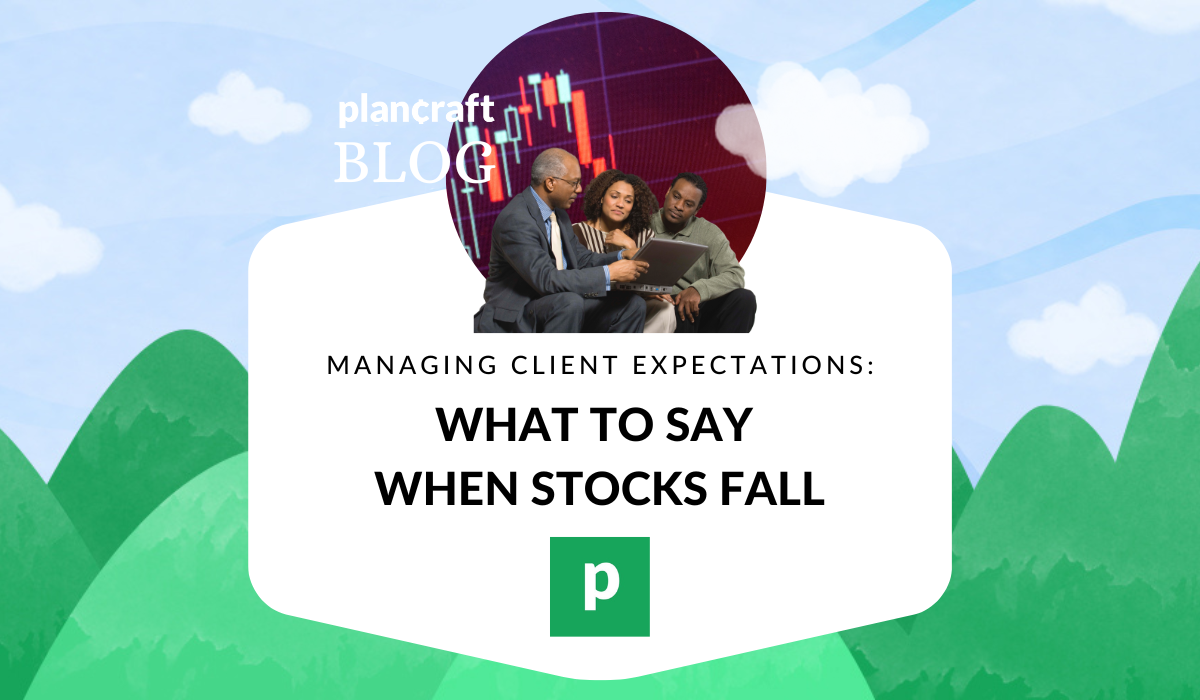The world of financial planning is vast and intricate. The backdrop to an advisor's primary theater, however, is interacting with potential clients. Expertise in financial matters is indispensable, sure.
However, the ability to sell oneself and one's services is absolutely necessary as well. This is where sales training for financial advisors becomes not just advantageous, but essential.
Imagine two scenarios. In the first, a financial advisor is exceptionally knowledgeable. Unfortunately, they struggle to convey their insights in a manner that resonates with clients.
In the second, another advisor, equally informed, navigates the conversation with ease. They lead clients through the sales process, address concerns, and effectively highlight the value of their services. It's evident which advisor is likely to secure the client's trust and business. This difference, more often than not, is attributed to effective sales training.
Marrying the art of sales with the science of financial planning results in a synergy that's potent for business development. Financial advisors, at their core, are problem solvers. They identify gaps in a client's financial strategy and offer solutions.
However, the task doesn't stop at identification. The real challenge lies in persuading the client to act on the advice. And this persuasion is an art, refined and honed through dedicated sales training.
Understanding the financial advisor role, then, is not just about crunching numbers or crafting investment strategies. It's about creating a journey for the client. You want every interaction to add value, instill trust, and nudge them a step closer to their financial goals.
To navigate this journey effectively, sales training is your compass. It guides advisors towards establishing fruitful, long-term relationships with their clients.
Building Trust & Improving Communication
In the landscape of financial advising, it's not just the expertise about a product or service that counts. How that knowledge is conveyed to the potential customer is equally if not more important. Herein lies the significance of marrying trust-building with effective communication.
Let's start with a foundational sales skill: building trust. Trust is not just handed over; it's cultivated over time.
The foundation of any fruitful advisor-client relationship is the trust they share. Potential customers want assurance that they're not just another transaction. They need to feel that their financial futures are safe in your hands.
The question then arises, how can an advisor cultivate this trust? The key is consistency and transparency in every interaction. From the first meeting, it's pivotal to display genuine interest in the client's financial aspirations and concerns. By understanding and delineating an ideal client profile, advisors can ensure their approach is tailor-made.
Your advice will then resonate more deeply with individuals’ unique needs and aspirations.
Moving to communication, it's not always about what you say but how you say it. The realm of finance can be daunting for many, filled with jargon and intricate nuances. An effective communicator can take these complexities and distill them into clear, comprehensible insights.
It's about speaking the client's language, making them feel at ease, and illuminating the path ahead rather than inundating them with excessive detail. But it's also about active listening. To truly understand and address a client's concerns, one must first genuinely listen. By doing so, advisors not only gain critical insights but also make the client feel valued and heard.
Integrating trust-building with powerful communication becomes an unbeatable combination in the arsenal of sales skills for financial advisors. Not only does this duo establish strong rapport with potential customers, but it also provides a roadmap on how to improve conversion rates.
It's one thing to offer a client a financial product or service; it's another to persuade them of its intrinsic value and its alignment with their financial objectives. By fostering trust and enhancing communication, financial advisors can bridge this gap, ensuring that their advice doesn't just echo in meeting rooms but translates into actionable, beneficial financial decisions for their clients.
Overcoming Objections
Every financial professional encounters objections. It's a part and parcel of financial advisor prospecting. Whether it's about the cost, the approach, or simply the fear of change, objections can be significant hurdles in converting potential clients. However, with the right strategies in place, these objections can become opportunities for dialogue, education, and deepening trust.
Firstly, understanding the root of objections is crucial. More often than not, these reservations arise from pain points the client has faced in the past. Maybe they had a financial advisor who promised more than they could deliver.
Perhaps they feel overwhelmed by the plethora of financial tools and solutions in the market. By digging deeper and identifying these pain points, financial professionals can address objections with empathy and precision.
Your prospecting strategy should always be evolving. Tailor your approach based on the feedback and concerns you receive. This doesn't mean changing your core services, but perhaps adjusting your communication style or the way you present information.
Remember, objections are feedback, and feedback is the cornerstone of improvement.
To increase your conversion rate, preemptive objection handling is pivotal. Instead of waiting for prospects to raise concerns, address potential objections during your presentations or marketing campaigns. By showcasing testimonials, offering data, or sharing case studies, you can tackle these objections head-on, often before they even take shape in the prospect's mind.
Moreover, training plays a critical role. Financial professionals should continuously upgrade their skills and techniques in handling objections. There are numerous courses and workshops centered on this very challenge, equipping advisors with strategies to navigate objections skillfully.
In essence, overcoming objections is about shifting perspectives. Instead of viewing objections as barriers, financial advisors should see them as bridges—opportunities to connect, educate, and build deeper relationships. With the right strategies and mindset, objections can transform from dreaded encounters into fruitful conversations, laying the groundwork for long-term client relationships.
Sales Process & Funnel Management
Alright, let's break it down. Think of a funnel, wide at the top and narrow at the bottom. This shape illustrates how many potential clients you start with and how many actually choose your services. Managing this funnel is key to boosting your sales.
Start with social media. It's where everyone hangs out these days, right? Use it to show off your expertise, share client testimonials (that's social proof for you) and build your brand. An engaging post can attract a lot of potential clients to your business.
Now, once they're interested, guide them to your landing page. This isn't just any web page; it's a special one designed to give visitors exactly what they're looking for and persuade them to take action. Maybe it’s filling out a contact form or checking out your product page for detailed financial services you offer.
Finally, don’t forget email marketing. Send out regular emails with helpful financial tips. It keeps you in their minds, and when they’re ready to choose a financial advisor, guess who they’ll think of?
Remember, the idea is to guide potential clients smoothly from the wide top to the narrow bottom of your funnel. Manage it well, and watch your client list grow!
Earning Clients for Life
We've chatted about a bunch of strategies, but here’s the golden ticket: networking and referral building. Think about it, when you’re choosing a restaurant or movie, don’t you usually go with a friend’s recommendation? The same logic applies to the financial advising world.
Getting your current clients to spread the word about your expertise can be more powerful than any ad. And that’s where networking steps in.
By attending events, joining financial advising groups, or just having coffee with fellow professionals, you create relationships. These connections can lead to referrals, where they introduce potential clients to you. It's like getting a vote of confidence before you even meet!
But don't just sit back and wait for these referrals to roll in. Ask satisfied clients if they know anyone else who could benefit from your services. If they had a positive experience, they’re likely to recommend you. Plus, it shows you’re proactive, which is always a good look!
Last but not least, never stop learning. The best sales training for financial advisors will not only improve your sales techniques but also teach you innovative ways to network and gather referrals.
So, to all the financial advisors out there, remember: while having technical know-how is vital, the power of genuine human connections can’t be underestimated. Embrace networking and focus on referrals, and you’ll not just meet but exceed your sales goals. Go out there and make those connections count!
Don't Stop Here
This blog is just the tip of the iceberg. If you really want to sink some ships, you're going to have to dive deeper. Lucky for you, Planswell's spent years and over $15 million developing a system that's literally guaranteed book you more calls and boost your close rate.
Does that sound even a little interesting? Maybe you should take a closer look.






-1.png)
-2.png)

